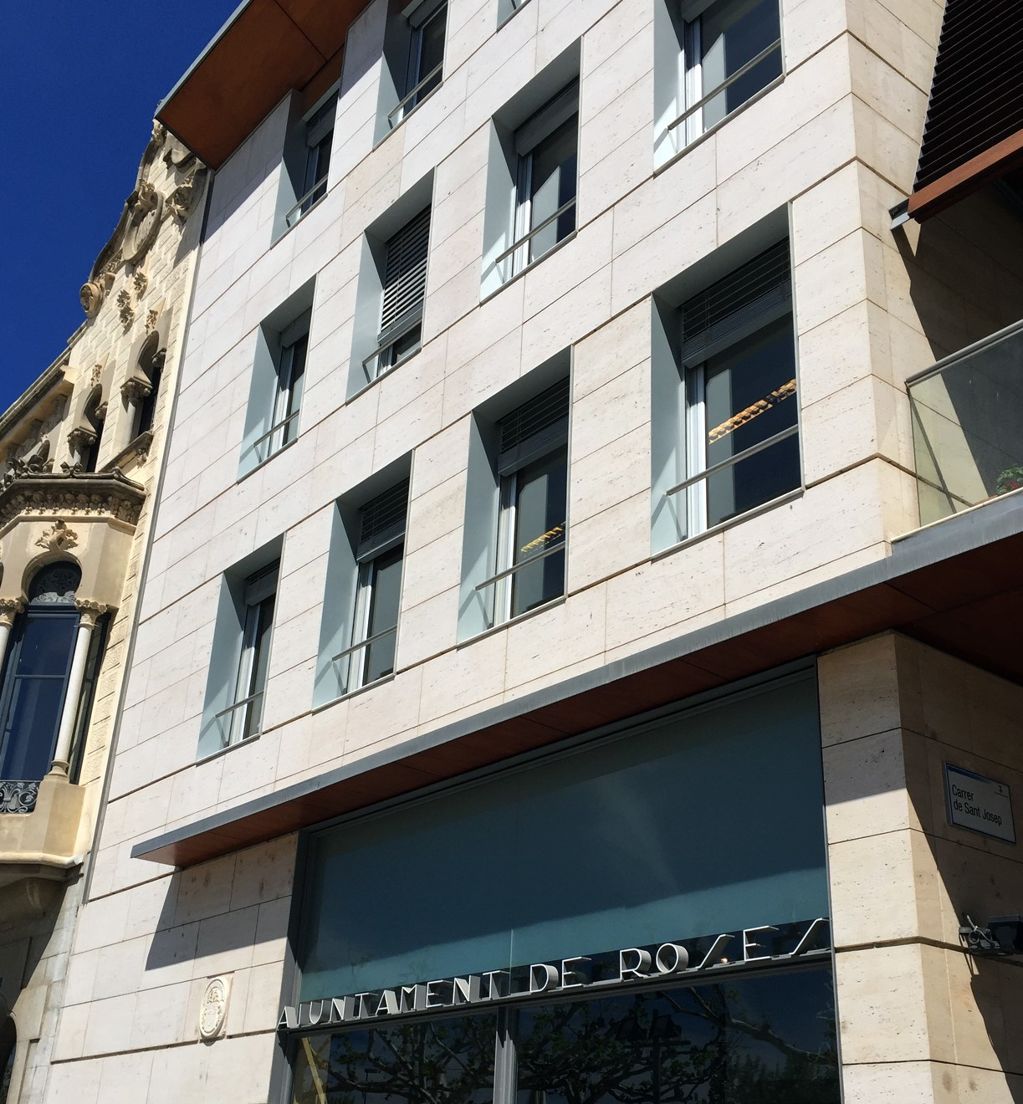Mayoral decree on the occasion of the alert and possible drought situation. 16/02/2023
On the occasion of the alert situation of the Catalan Water Agency's Special Plan for action in situations of alert and possible drought, approved by Agreement GOV/1/2020 of 8 January, the Drought Monitoring Committee of the Consortium of Aigües Costa Brava Girona has communicated specific measures to be applied in relation to the use of water, due to the alert scenario, so that they can be implemented with the utmost urgency.
According to the Catalan Water Agency's water reserve status viewer, the municipality of Roses belongs to the Darnius-Boadella reservoir unit, which is in a state of Alert.
Therefore, from this moment on and until the water reserves are recovered, Roses Town Council asks for a responsible use of water in order to intensify water saving and to guarantee the water supply.
The use of water for supplying the population is subject to the following limitations:
"Particular limitations on the use of water for public water supply Alert
The use of water for public supply is subject to the following limitations, which apply to all sources except where otherwise indicated and which must be enforced by the competent administration in charge of the management of the domestic water supply service.
a) Watering of gardens and green areas, both public and private, must only be carried out during the hours of least sunshine (from 8pm to 8am).
Watering should be carried out as little as possible, adapting at all times to the temperature and humidity conditions. Irrigation must be avoided during rainy periods, either by using automatic sensors or other forms of irrigation supervision. In any case, a watering rate of 450 m³ /ha/month should not be exceeded.
Private gardens may be irrigated a maximum of two days per week. Local authorities have to determine the pattern of alternation. By default, even-numbered and unnumbered dwellings may water on Wednesdays and Saturdays, and unnumbered dwellings on Thursdays and Sundays.
b) The total or partial filling of ornamental fountains, artificial lakes and other elements for the aesthetic use of water is prohibited.
As an exception to the above, in artificial lakes that provide vital support for aquatic life, the minimum use of water necessary for the maintenance of the same is permitted. In any case, the transfer and/or concentration of the affected aquatic life to an environment that ensures maximum survival with minimum water consumption must be studied and, if feasible, carried out.
c) Private individuals are prohibited from cleaning streets, pavements, facades and the like using water hoses or other systems that use a sheet of water to wash away dirt. The prohibition does not include mopping, bucket and sponge or high-pressure cleaning systems.
The municipal services must clean with the minimum amount of water necessary and, where possible, prioritise the use of water that does not come from the drinking water supply system.
d) The use of water for the removal of dust and airborne matter is prohibited.
e) The use of water for filling swimming pools is limited to the following cases:
- The partial refilling of swimming pools with a water recirculation system, in the quantities necessary to replace water losses due to evaporation and filter cleaning and to guarantee the sanitary quality of the water.
- The first filling of newly built swimming pools.
- In educational centres, the full or partial filling of removable pools with a capacity of less than 500 litres intended for children's bathing.
These limitations do not apply to seawater pools that are filled and emptied without connection to the public supply and sanitation networks.
f) The cleaning of any type of vehicle is limited to the following cases:
- Cleaning in commercial establishments dedicated to this activity that have water recirculation systems.
- Outside commercial establishments, only the cleaning of windows, mirrors, rear-view mirrors, lights and number plates using a sponge and bucket is permitted.
- Cleaning of vehicles outside commercial premises is also permitted if it is necessary to maintain the safety and health of people and animals. This category includes vehicles for the transport of food, animals (dead or alive), ambulances, medical vehicles and the transport of medicines, as well as vehicles for the transport of waste. In all cases, cleaning shall be carried out with the minimum possible use of water.
g) The use of water from the drinking water supply system on farms is limited to the quantities necessary for the abeurament and cleaning of the animals as well as for the cleaning of the enclosure. For the latter use, only the quantities necessary to maintain sanitary conditions should be used, and only if no alternative source is available and only by means of pressure cleaning systems or other systems of equivalent efficiency. In any case, maximum allocations must be in accordance with the values foreseen in the hydrological planning.
h) Local administrations may establish in their Emergency Plans in situations of drought additional limitations and/or prohibitions on the use of water for the state of Alert in sports facilities, public or private, and in events and/or recreational spaces".
Due to the exceptional nature of the serious drought situation that Catalonia is suffering, it is necessary to be aware and to maximise efficiency in the use of water.
Therefore, Roses Town Council calls for responsibility and solidarity to ensure compliance with these regulations.
Source: https://www.roses.cat/noticies/ban-dalcaldia-amb-motiu-de-la-situacio-dalerta-i-eventual-sequera
